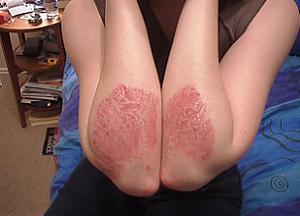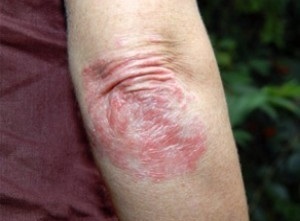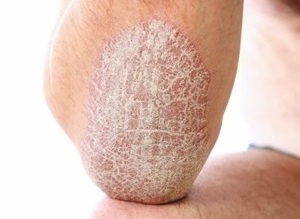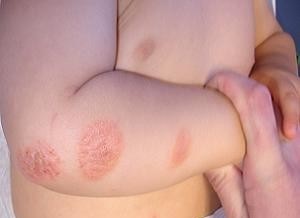
Psoriasis is a chronic skin disease that is difficult to treat. Psoriatic plaques appear in various parts of the body, causing much inconvenience and suffering to the patient. A noticeable cosmetic defect worsens relations with others, provokes the development of complexes.
Treatment of psoriasis requires an integrated approach. The untimely search for medical help has serious consequences: the disease can be inherited. Compliance with the doctor's recommendations will alleviate suffering and reduce the manifestations of psoriasis.
Causes of occurrence
Skin diseases are of great interest to researchers. Doctors only have assumptions, factors that can cause psoriasis. The most common cause of psoriasis is a genetic predisposition. However, dermatologists have yet to reach a consensus: "Why does psoriasis appear? "
There are two theories:
- the first says: type of squamous lichen develops when the maturation of epidermal cells, their reproduction and differentiation is altered. Autoimmune processes play a secondary role;
- second hypothesis: the cause of skin lesions is a malfunction of the immune system. Problems with the normal functioning of the epidermal cells are secondary.
Triggering factors:
- lack of vitamins and minerals in the body due to the small amount of vegetables and fruits on the menu;
- weakened nervous health due to frequent stress;
- abuse of strong drugs;
- metabolic disorders due to improper nutrition;
- decreased immunity after infectious diseases.

Risk group:
- hypertensive patients;
- obese people;
- diabetics;
- people who drink alcohol excessively;
- patients who have received courses of chemotherapy, treatment with corticosteroids, strong antibiotics.
Symptoms and stages of the disease
Stages of psoriatic eruptions:
- initial stage. On the elbows, other areas, appear pink or reddish papules, covered with scales with a heterogeneous structure. Over time, the rash occupies an increasingly larger area, redness of the skin appears, swelling and itching develops;
- most symptoms appear in people whose bodies are saturated with drugs. In the risk group: people who have suffered a psycho-emotional trauma;
- The next stage is the appearance of the Kebner phenomenon. After scratching, abrasions, wounds, bleeding areas appear on the body. Little by little they merge, forming symmetrical lines and plates. The nails are often affected;
- third stage. The rash becomes brighter, the plaques acquire clear contours, the affected areas turn blue, itch, peel off;
- The symptoms gradually disappear. It is first peeled off, then the color of the epidermis is restored. The final stage is the reabsorption of infiltrates, improvement of the condition of the skin.
Is psoriasis contagious? Is it possible to get sick when communicating, shaking hands, playing together, having sex? The answer is no! "The nature of the pathology is different, there are no viruses or fungi on the skin. Do not take the psoriasis patient away from you! It is already difficult for him. Support the person morally.
Location Locations:
- elbow joints. Relatively smooth shape. Clusters of plates with well-defined edges appear symmetrically on both arms. Color: salmon or rose red;
- palms. The disease is characterized by keratinization of surfaces, desquamation, severe itching;
- ears and scalp. Psoriatic eruptions appear on the inside and outside of the atria, on the head. In case of unexpected itching inside the ears, it is recommended to immediately visit a dermatologist;
- legs. Often, plaques, redness, and itching in the lower extremities appear simultaneously with rashes on the hands. Outwardly, the manifestations of the disease are similar;
- return. Squamous lichen affects several areas of the back. The rash takes on a teardrop shape. Often the rash resembles ordinary plaques;
- face. In this area, rashes appear less frequently. On the eyebrows, in the area of the nasolabial folds, small papules appear near the eyes. In isolated cases, scale-covered formations are visible on the lips.
Disease diagnosis

A dermatologist or therapist can easily diagnose psoriasis by its characteristic features. Sometimes a biopsy of the affected skin is required. The microscopic piece is sent for laboratory research.
The method of hemostatic scanning with a drop of blood is widely advertised. Special computer programs and high-power electron microscope are used.
Experts recommend abandoning the services of "doctors" who have no medical education. Charlatans often use only this method to diagnose various diseases, without worrying about further research.
Be sure to visit a dermatologist, therapist. An experienced doctor will tell you whether or not you have psoriasis based on clinical signs.
Treatment methods
How to cure psoriasis? Complex therapy will help to eliminate unpleasant symptoms to improve the patient's condition. In many cases, the treatment is long-term, with an additional action of the provoking factors, relapses are possible.
Experts recommend using not only drugs, but also folk recipes, diet foods and physiotherapy methods. The patient is required to strictly follow the doctor's prescriptions.
Medications
Both topical and systemic drugs are used:
- antihistamines;
- sedatives;
- anti-inflammatory drugs;
- ointments and gels for psoriasis.
Physiotherapy is effective:
- phototherapy;
- ultraviolet irradiation;
- laser therapy;
- cryotherapy.
Nutrition for psoriasis
The patient is required to follow a hypoallergenic diet for psoriasis. You need to consume as little food as possible that will cause a rush of blood to the affected skin. It is important to emphasize foods rich in vitamins and minerals.
Forbidden:
- spicy dishes;
- smoked products;
- alcohol;
- red, black pepper, other spices;
- coffee;
- hot drinks.
Not recommended:
- chocolate;
- sweets;
- whole milk;
- honey;
- citrus;
- vegetables, red fruits.
Folk remedies and recipes
After consulting a dermatologist or therapist, add home methods to your medications and physical therapy treatments. Effective ointments, decoctions of medicinal herbs, lotions and baths will improve the condition, relieve itching and burning.
Treating psoriasis at home with home remedies. Best recipes:
- string baths and sea salt.Prepare a decoction: per liter of water - 2 tablespoons. l. turns. Pour 4 tablespoons into the bath. l. sea salt, pour in the strained broth. The duration of the procedure is 20 minutes. Excellent drying and soothing agent;
- decoction of medicinal herbs.Prepare in 0, 5 liters of water a teaspoon of nettle, burdock root, licorice and calamus, a sequence. Boil for 5 minutes, let it rest. Clean the affected areas with a healing broth several times a day;
- dandelion root tea, nettle leaves, St. John's worttake orally. The drink perfectly cleanses the blood, increases immunity, calms;
- herbal lotions.Take 4 tablespoons. l. celandine, add calendula, string, motherwort, chamomile (all herbs will need 2 tbsp. l. ). Pour a liter of hot, warm water into a water bath. Gauze moistened in broth, apply to painful areas twice a day;
- homemade ointment.Combine fish oil, pine resin, aloe juice, olive oil, sulfur, birch tar in equal proportions. Add the same amount of celandine, dominant herbs, pour a few drops of sea buckthorn oil. Let it rest, strain. Lubricate affected areas daily. The tool soothes the skin, reduces itching, heals wounds;
- applying birch taron elbows, ears, other areas affected by the manifestations of scaly lichen gives a good effect;
- monastery tea for psoriasis.A medicinal drink with medicinal herbs will ease the course of the disease.
Cutaneous psoriasis in children
Chronic disease occurs in infants and older children. Most cases of psoriasis are seen in preschoolers and elementary school children.
Symptoms:
- spots, bubbles, red dots appear on the skin;
- gradually the rash becomes more, peeling appears;
- the body itches, the scabs crack, painful areas appear.

The main locations of lesions:
- elbows;
- knees;
- legs, arms;
- Psoriasis sometimes affects the nails.
Diagnosis is straightforward. Pronounced symptoms are difficult to confuse with manifestations of other diseases.
Reasons:
- stress;
- hormonal imbalance;
- colds;
- some medications;
- genetic predisposition;
- respiratory diseases;
- abrupt climate change.
Healing:
- proper skin care;
- ascorbic acid;
- vitamin B12;
- ointments and gels;
- antihistamines.
Herbal baths with chamomile, yarrow, celandine, succession give a good effect. The soothing rates will help improve sleep. In severe cases, the doctor will prescribe sleeping pills.
Sometimes a child needs to be hospitalized to relieve acute symptoms. Don't give up the hospital. Droppers, injections significantly alleviate the condition.
Hint!Do not prescribe powerful medications on your own. Doctors are trying to use fewer drugs that have a toxic effect.
Preventive recommendations
There are no specific precautions to prevent this serious skin condition. For this reason, many people suffer from unpleasant symptoms for many years.
Sometimes the psychological trauma is as severe as occasional rashes and itching during flare-ups. Try to alleviate the course of the disease.
What else can you do?
- avoid hypothermia;
- keep the room at optimum humidity;
- takes good care of the epidermis;
- create a calm atmosphere in the family;
- , if necessary, change jobs to avoid stressful situations and other harmful influences;
- don't hurt your skin.
Remember: you are not alone in your problem. The diagnosis of psoriasis is recorded in the outpatient records of hundreds of thousands of people. Don't despair, even with such a serious illness you can live without losing hope for the future. Communicate, seek the support of your loved ones, follow the recommendations of doctors. Try to avoid being swallowed up by the disease.























